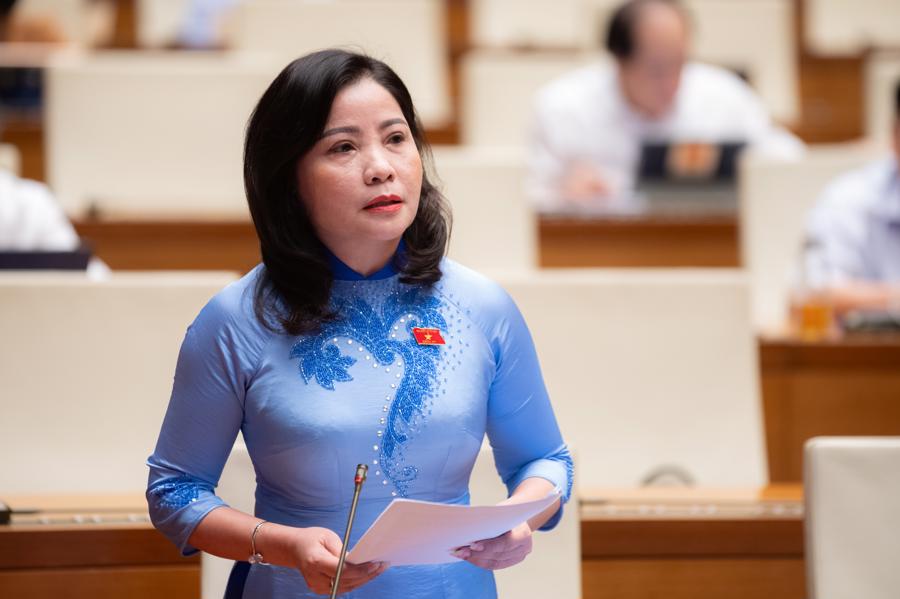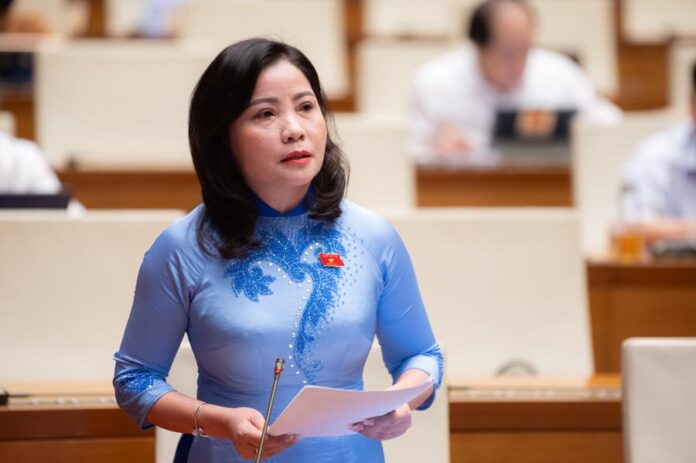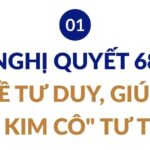On May 27, the National Assembly continued its 9th session with a discussion in the hall about the draft law amending and supplementing a number of articles of the Penal Code.
The draft law amends and supplements a number of articles of the Penal Code, removing the death penalty and replacing it with life imprisonment without parole (while still ensuring the isolation of the offender from society) for 8 out of 18 capital offenses in the current Penal Code. These include crimes such as activities aimed at overthrowing the people’s administration (Article 109); Espionage (Article 110); Sabotage of the technical and material bases of the Socialist Republic of Vietnam (Article 114); Production and trading of counterfeit medicines and medical equipment (Article 194); Illegal transport of narcotics (Article 250); Embezzlement of property (Article 353); Accepting bribes (Article 354); and Undermining peace and waging aggressive war (Article 421).
STAND FIRM AGAINST COUNTERFEIT MEDICINE AND MEDICAL EQUIPMENT PRODUCTION AND TRADE
Among these amendments, the removal of the death penalty for the production and trading of counterfeit medicines and medical equipment has garnered significant attention and feedback from National Assembly delegates.
Delegate Nguyen Thi Thu Nguyet from the Dak Lak delegation expressed her agreement with the draft amendment to the Penal Code. Focusing on the specific issue of counterfeit medicine and medical equipment production and trade, she referenced Point B, Clause 4, which states: “Offenders shall be sentenced to 20 years’ imprisonment, life imprisonment, or life imprisonment without parole if their actions result in the death of two or more people.”
Delegate Nguyet argued that the conditions stipulated for this offense do not match the nature and severity of the crime and do not serve as a strong deterrent for such offenses. In reality, there have been cases where individuals have engaged in the production and trading of counterfeit medicines, resulting in severe consequences. This type of crime not only causes significant material and financial losses but also poses a direct threat to people’s health and lives.

Delegate Nguyet emphasized the dire consequences of counterfeit medicine and medical equipment production and trade, stating, “We cannot compromise on this issue. The regulations for this type of offense must serve as a strong deterrent.” She further stressed, “If we show leniency toward this crime, we may inadvertently become accomplices to mass murder in the future, endangering our society.”
Therefore, Delegate Nguyet suggested that the drafting committee revise the clauses to ensure they align with the content and intent of the relevant article in the Penal Code.
PROPOSAL TO REINSTATE THE DEATH PENALTY FOR PRODUCING AND TRADING COUNTERFEIT FOOD PRODUCTS
Delegate Pham Khanh Phong Lan from Ho Chi Minh City acknowledged the seriousness of offenses such as illegal drug trafficking, producing and trading counterfeit medicines, and other crimes. However, she expressed concern about the removal of the death penalty for these offenses. She asked, “If we show humanity to these criminals, what about the families of the victims who have lost their loved ones because of these crimes? How would they feel?”
Delegate Lan emphasized that those who engage in such offenses are fully aware of the consequences and impact of their actions. Despite widespread legal education and awareness campaigns, many offenders knowingly cause harm for their personal gain. While agreeing that the current law imposes corresponding penalties according to the severity of the violation, she suggested retaining the death penalty as the maximum sentence for the most egregious cases. This, she argued, would demonstrate to the people that the National Assembly creates laws for the benefit of the people and to build a safe society.
Delegate Lan proposed reinstating the death penalty for cases involving the production and trading of counterfeit food products, especially milk and dietary supplements. These products directly affect vulnerable members of society and have a significant impact on people’s health and trust.
“Of course, when designing the law, we must consider and calculate to ensure reasonableness, fairness, and correctness,” she added. “We must avoid being lenient or compromising with these types of crimes. Detection is already challenging, and when offenders are caught, we struggle to impose appropriate sentences without the option of the death penalty.”
Delegate Lan acknowledged that the death penalty is not always the only solution and may not deter all potential offenders. Nevertheless, it plays a role in restoring order and demonstrating a firm stance against such heinous acts.
Delegate Pham Van Hoa from the Dong Thap delegation shared similar concerns about removing the death penalty for crimes such as embezzlement, bribery, illegal drug trafficking, and producing and trading counterfeit medicines.
Enhancing Vietnam – Japan Economic Partnership
“Amidst global economic challenges, particularly the backdrop of the US countervailing duty policy, strengthening the Vietnam-Japan Comprehensive Strategic Partnership is of paramount importance for the socio-economic development of both nations.”
“Vietnamese Private Sector: No Need for Praises, Just Treat Them as the Norm”
The private sector in Vietnam has faced numerous challenges, but the introduction of Resolution 68 has been a game-changer. This pivotal resolution has unlocked a world of opportunities, acting as a key to overcoming obstacles and paving the way for remarkable growth and transformation within the private sector. It has truly been a catalyst for shaping the nation’s economy and fostering a thriving business environment.





















